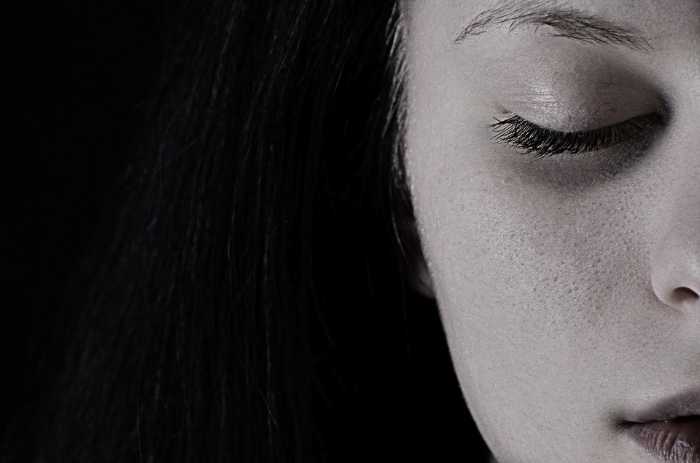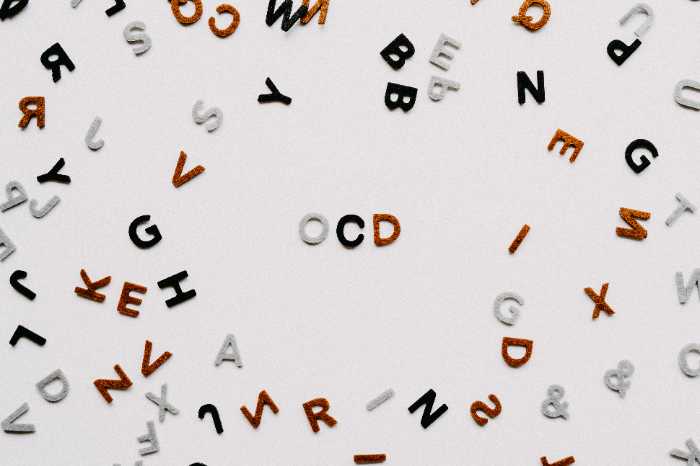Do you have a tendency to excessively worry about things? Do you feel the need to check things repeatedly? If so, you may be suffering from Obsessive-Compulsive Disorder (OCD). OCD is a mental illness that can cause a great deal of distress in sufferers’ lives. In this post, we will discuss 10 common symptoms of OCD. If you are experiencing any of these symptoms, please consult with a doctor or mental health professional for help.

Obsessive-Compulsive Disorder (OCD)
Obsessive-Compulsive Disorder, or OCD, is one of the common mental disorders that can develop in people of any age. OCD is characterized by persistent and intrusive thoughts, urges, or images that lead to anxiety and distress. People with OCD often feel the need to perform certain rituals or behaviors in order to relieve their anxiety. These rituals can include cleaning, hand-washing, counting, checking, or repeating certain words or phrases. In severe cases, OCD can interfere with and disrupt a person’s daily life. However, with treatment, many people who develop OCD are able to manage their symptoms and live relatively normal lives.
10 OCD Symptoms
OCD, or Obsessive Compulsive Disorder, is a mental disorder that affects millions of people around the world. It is characterized by intrusive, unwanted thoughts (obsessions) and repetitive behaviors (compulsions) that the person feels compelled to do in order to ease anxiety.
While some people with OCD may only have a few obsessions and compulsions, others may have dozens. The severity of OCD can vary from person to person, but all individuals with OCD share one thing in common: their symptoms cause them significant distress and interfere with their ability to live a normal, productive life.
The following are 10 common symptoms of OCD:
A Need For Exactness Or Symmetry
This may manifest itself in a need to arrange objects in a certain way or to have things line up perfectly. It can also be an excessive concern with cleanliness and orderliness.
Compulsive Behaviors
These are repetitive behaviors that the sufferer feels compelled to do in order to relieve anxiety. Common compulsions include hand-washing, counting, and checking (e.g., making sure the oven is turned off).
Intrusive And Obsessive Thoughts
These are disturbing and often unwanted thoughts that repeatedly enter the sufferer’s mind. The content of these thoughts may be violent, sexual, or otherwise distressing.

Excessive Worry
This may manifest itself as constant worry about one’s health, safety, or the well-being of loved ones.
Perfectionism
This is a need to have everything be perfect or just “right.” It can interfere with completing tasks as the sufferer is never satisfied with the results.
Time Consumption
OCD can consume a great deal of time as sufferers perform their compulsions or engage in avoidance behaviors.
Avoidance
This is when the sufferer avoids certain situations or places that trigger their OCD symptoms. For example, a person with a fear of germs may avoid public places.
Difficulty Concentrating
The intrusive thoughts and worry associated with OCD can make it difficult to concentrate on tasks.
Sleep Problems
The anxiety caused by OCD can lead to difficulty falling asleep or staying asleep.
Tension and irritability
The stress of living with OCD can lead to tension and irritability.

If you are experiencing any of these symptoms, please consult with a doctor or mental health professional for help. OCD can be a very debilitating disorder, but there are treatments available that can help. With proper treatment, many people with OCD are able to lead happy and productive lives.
Causes Of OCD
The exact cause of OCD is not fully understood, but it is thought to be a combination of genetic and environmental factors. Studies have shown that OCD runs in families, suggesting that there may be a genetic predisposition to the condition. However, it is still unclear exactly what role genes play in the development of OCD. In addition to genetic factors, it is thought that certain environmental triggers, such as stress or trauma, may contribute to the development of OCD. While the exact cause of OCD remains unknown, research into this area is ongoing and hopefully will lead to a greater understanding of the condition in the future.
Diagnosis Of OCD
A diagnosis of OCD is typically made by a mental health professional after conducting a thorough clinical assessment. This assessment may include a physical exam, medical history, psychological evaluation, and discussion of symptoms. If you or someone you know is displaying signs of OCD, reach out to a mental health professional for help.
Risk Factors Of OCD
There are a number of risk factors that may increase the likelihood of developing OCD, including genetics, brain structure, and life experiences.
People who have a family member with OCD are more likely to develop the condition themselves. This suggests that there may be a genetic component to the disorder. Additionally, brain imaging studies have shown that the brains of people with OCD tend to be different than those of people without OCD. It’s thought that these differences in brain structure may contribute to the development of the condition. Lastly, certain life experiences, such as trauma or stressful life events, can also trigger OCD.

If you or someone you know is struggling with OCD, it’s important to seek help from a mental health professional. With treatment, most people with OCD can learn to manage their symptoms and live full and productive lives.
How To Treat OCD
There are many different ways to treat OCD, but most treatment plans involve a combination of medication and therapy. Medication can help to reduce the intensity of symptoms, while therapy can help patients learn how to manage their thoughts and behaviors. In some cases, patients may also benefit from exposure and response prevention therapy, which involves confronting their fears head-on. With the right treatment plan, many people with OCD are able to live happy and productive lives.
Final Thoughts
Although OCD can be a debilitating disorder, it is important to remember that there is hope for recovery. With proper treatment, many people with OCD are able to manage their symptoms and lead fulfilling lives. If you think you may have OCD, talk to your doctor or mental health professional. They can help you get the treatment you need to start feeling better.
Read More: